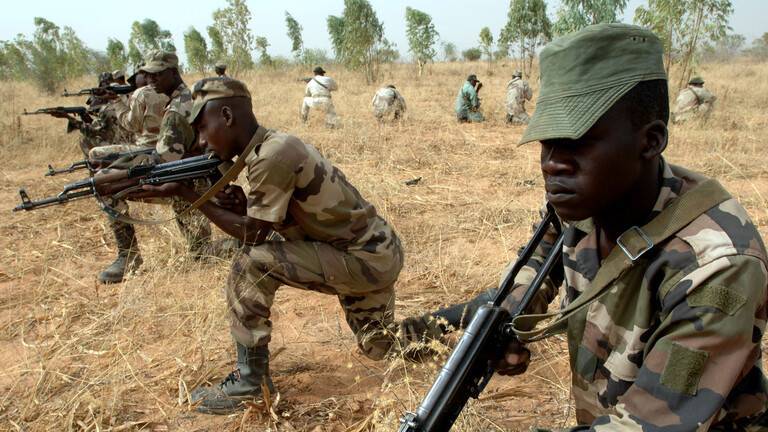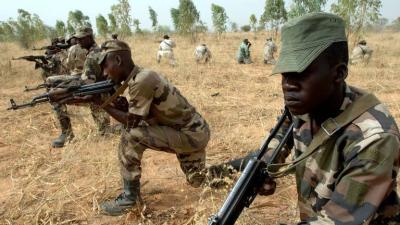At least 17 Nigerian soldiers were killed and 20 others injured in an attack carried out by armed militants, believed to be "jihadists," near the border with Mali. The Nigerien Ministry of Defense stated on Wednesday that "a unit of the Nigerien armed forces moving between Boni and Torodi fell victim to an terrorist ambush at the outskirts of the town of Kotogou," noting that the "preliminary toll" among the soldiers is 17 dead and 20 wounded, with six of them in serious condition, and all have been "evacuated to Niamey."
The military council in Niger has seized power, with the former presidential guard commander General Omar Abdel Rahman Tiani justifying the ousting of President Mohamed Bazoum by citing his failures in security, economy, and social matters, in a country that ranks among the poorest in the world and suffers from the activities of armed groups. Earlier, the military council in Niger threatened to bring Bazoum to justice and prosecute him for "high treason" and "undermining the security" of the country if neighboring countries intervened militarily.
ECOWAS condemned the announcement, reminding that "this constitutes a form of provocation, which contradicts the mandate given to the military authorities of the Republic of Niger to restore constitutional order through peaceful means."
Like other countries in the West African Sahel region, Niger has struggled for years to contain a rebellion by groups linked to al-Qaeda and the Islamic State, which have claimed thousands of lives and displaced millions, causing food shortages. The inability of civilian governments to overcome the problem has been one of the factors leading to a series of coups in the region, but the primary motivations for the army's takeover in the case of Niger lay in domestic politics.
Members of the presidential guard, led by General Abdel Rahman Tiani, ousted President Mohamed Bazoum, who they continue to hold captive, defying pressures from the United Nations, ECOWAS, and Western powers to restore him to office. Tiani stated that the power takeover was necessary to suppress the rebellion, but analysts noted that attacks during Bazoum's rule continued to occur frequently, although they had decreased as the ousted president sought to engage with Islamists and rural communities where Islamists have entrenched themselves.
Niger hosts American, French, German, and Italian troops as part of international efforts to combat the rebellion, based on agreements with the civilian government that was overthrown by the army. The future of these foreign forces remains unclear as the military council employs anti-French rhetoric and resists pressure from ECOWAS, the United Nations, and Western countries to negotiate a way out of the current situation.
Niger holds additional strategic importance for global powers due to its reserves of uranium and oil. Insecurity continues to be a major issue throughout the southwestern part of the country, near the borders with Mali and Burkina Faso, both governed by military governments that came to power through coups. The departure of French forces from Mali last year left a security vacuum that has been exploited by Islamists. The military council in Mali has enlisted forces from the Russian private military group Wagner, which has faced allegations of executing civilians and committing other grave human rights violations. Wagner claims to operate legally.
The coup leaders in Niger have annulled a series of military agreements with France, but Paris has dismissed these actions, stating that it does not recognize the coup leaders as a legitimate authority.




